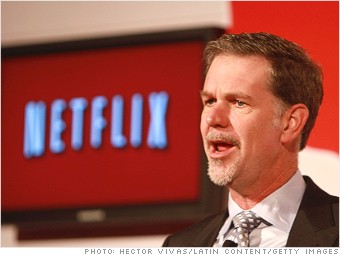

Management missteps and a failure to adapt to a changing tech landscape has put these seven big-name CEOs in the crosshairs.

For Fortune's CEO of the Year just two short years ago, a once-comfortable seat is now boiling.
Reed Hastings' miscues with price hikes and the ill-fated Qwikster are well-documented, but Netflix's problems go beyond PR disasters. Amazon (AMZN) is a growing competitive threat in online streaming video, and Netflix (NFLX) isn't the juggernaut it once was. So far this year, Netflix has added just 3.4 million new U.S. streaming subscribers, about half of its initial goal for 2012.
Even new, high-profile new deals don't go unpunished. Netflix's announcement that it has signed a deal with Disney was met with scorn by some analysts, including Albert Fried analyst Rich Tullo, who noted that Disney's (DIS) best content won't be available on the service for more than three years.
Netflix also faces questions about its ability to compete with much richer rivals. The growing field includes includes Hulu and an upcoming Verizon-Redbox partnership, which are both backed by tech or media titans that have other revenue streams to finance their content acquisition costs.
Shares have rebounded 25% this year after plunging 61% in 2011. But investors continue to bet that Netflix remains a takeover target -- something that forced the company into evasive action a month ago when it adopted a poison pill to fend off activist investor Carl Icahn.
Hastings is also facing scrutiny from government regulators. The Securities and Exchange Commission is investigating a Hastings Facebook post from July that revealed that Netflix customers were watching 1 billion hours of streaming video each month -- information that had appeared in a company blog a month earlier. But in neither case did Netflix disclose that information directly to shareholders.
Netflix did not respond to a request for comment.